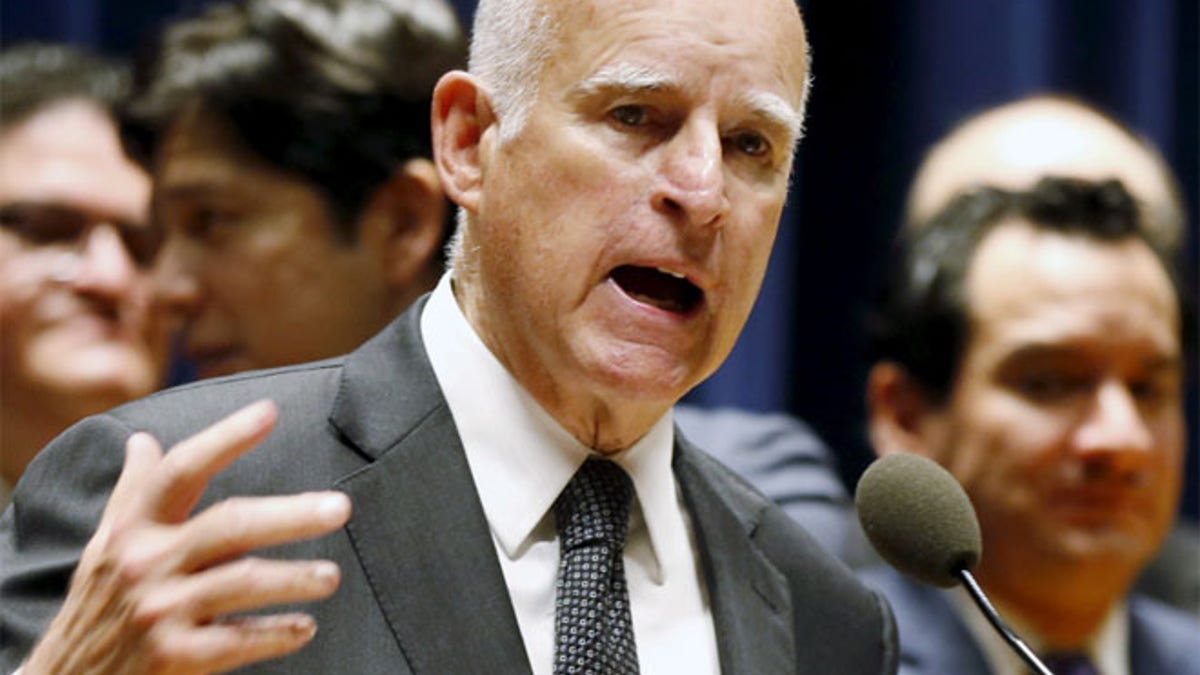
Gov. Jerry Brown's administration miscalculated costs for the state Medi-Cal program by $1.9 billion last year
SACRAMENTO, Calif. – Gov. Jerry Brown's administration miscalculated costs for the state Medi-Cal program by $1.9 billion last year, an oversight that contributed to Brown's projection of a deficit in the upcoming budget, officials acknowledged this week.
The administration discovered accounting mistakes last fall, but it did not notify lawmakers until the administration included adjustments to make up for the errors in Brown's budget proposal last week. The Democratic governor called for more than $3 billion in cuts because of a projected deficit he pegged at $1.6 billion.
"There's no other way to describe this other than a straight up error in accounting, which we deeply regret," said H.D. Palmer, a spokesman for the Department of Finance.
The agency followed its normal practice by waiting to report the errors in the governor's next budget, he said.
Brown's deficit projection was driven by more than just the accounting error, Palmer said, noting that California tax collections came in below expectations for most of the first half of the fiscal year.
The massive hole in the Medi-Cal budget surprised state lawmakers.
"It makes you wonder what else is not right. ... When something like this happens, the trust factor gets eroded, and you lose confidence in what's being provided to you," said Sen. John Moorlach, a Republican from Costa Mesa who serves on the Senate budget committee.
Making up for the Medi-Cal shortfall will mean the state can't spend money on other priorities, such as college scholarships or paying down long-term pension liabilities, Moorlach said.
The Medi-Cal program, California's version of Medicaid, is jointly funded by the state and federal governments to provide health coverage for people with low incomes.
It covers one in three Californians, at a total cost of more than $100 billion annually. About a sixth of the money comes from the state general fund and most of the rest from the federal government.
The Department of Finance said it did not account for $487 million in rebates from drugmakers that the state must pay the federal government to reimburse Washington for its share of Medi-Cal drug costs.
The state also miscalculated costs for the Coordinated Care Initiative, an experimental program in seven counties to improve care for a group of high-needs patients eligible for both Medi-Cal and Medicare, the federally funded health plan for seniors and people with disabilities.
Officials double-counted some of the expected savings, leading to a budget hole of $913 million, and undercounted the costs in San Mateo and Orange counties by $573 million.
In his spending plan, Brown proposed eliminating the Coordinated Care Initiative because he said the program was not cost effective, angering counties that said the change would shift $550 million in costs to them.
The initiative's accounting problems did not affect the administration's finding that the program should be eliminated, Palmer said.





















